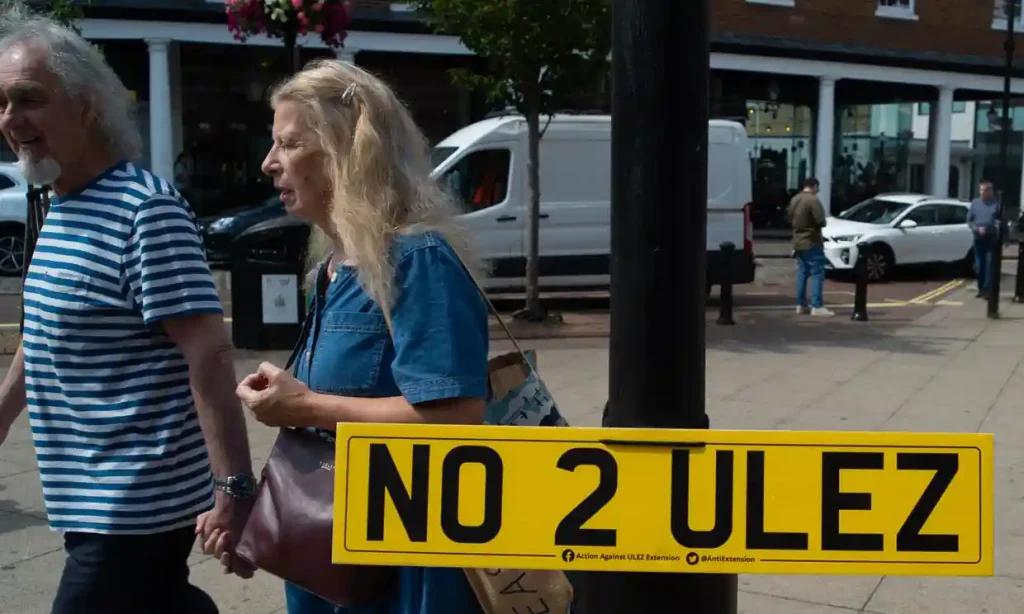Conservative weaponisation of discontent about London’s Ulez traffic charging scheme in the recent Uxbridge and South Ruislip byelection could be used to save a raft of under-threat Tories in the city’s outskirts, MPs have claimed.
The former party leader Iain Duncan Smith, who is defending a 1,262-vote majority in the ultra marginal north-east London seat of Chingford, said that opposition to expansion of the charge translated beyond the byelection last week and could motivate certain groups, including Labour voters and users of older cars.
“It’s not party political and is clearly deeply unpopular with Labour voters. To impose a Ulez zone in an area like mine is also something that adds extra costs and charges to people; many of them are retired and have already bought their last cars,” he told the Guardian.
It is understood Rishi Sunak is going to defer for a year major environmental changes that would force manufacturers to pay for the collection and recycling of products. A formal announcement is expected soon but a document signalling the shift was released by mistake.
More broadly, Duncan Smith said the problem across the three byelections – two of which the Tories lost – was that many Conservative supporters “couldn’t be bothered to turn out to vote”. The lesson was to find issues that resonated with them, he said.
“The key point is that I don’t think this is a 1996-1997 moment, because then voters had made up their minds and knew who Tony Blair and Gordon Brown were. Labour were going to get a majority. I don’t get the sense, knocking on doors now, that there is any great love for Labour,” he said.
Despite Michael Gove’s insistence on Monday that a target of banning the sale of all new petrol and diesel cars by 2030 was “immovable”, Duncan Smith was among backbenchers criticising the plan.
The Stoke Tory MP Jonathan Gullis called on Sunday for the ban to be pushed further into the future, telling LBC radio: “When you’re 18 or 20 points behind in the polls you’ve got nothing to lose and we should be willing to go for it.”
There was no question the British car industry could make the 2030 target “in competitive shape”, he claimed. There was also an appeal to be made to the UK’s automative manufacturing base, which was facing a flood of cheap electric cars from China.
Another London Tory MP, Paul Scully, said the Uxbridge result had shown that Sadiq Khan, the Labour mayor of London, was “beatable”.
In his own constituency of Sutton and Cheam, Scully said, many people would be reliant “on a few bus services” without their cars, and there was anger that Ulez was being “pushed through”.
However, with an eye on Tory voters more wedded to green politics, he differed from Duncan Smith in backing the 2030 target.
“If it does seem like it’s getting too challenging in about 2028 or ‘29 then you could look at extending it, but it does focus minds and it’s about getting industry ready. The whole point about phasing out combustion engines is that it gives people a realistic timeline to actually say: these are not going to be available and we have to prepare.”
Some senior Tories said, however, that Ulez might not have the same resonance in a national election as it did in Uxbridge. “Ulez is going to be a major issue at the mayoral elections,” said one London Conservative. “But I’m not so sure it will be top of voters’ minds when it comes to a general election.”


